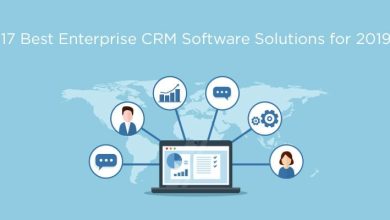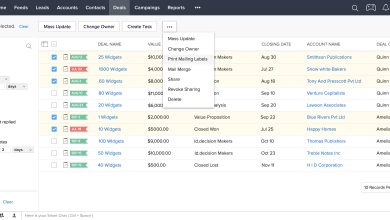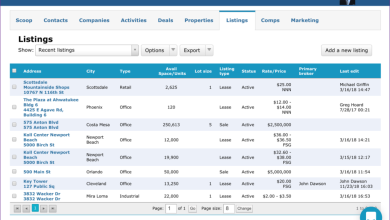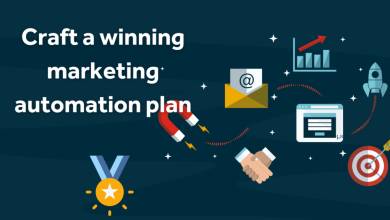AI-Powered CRM Software Transforming Customer Relationships with Smart Solutions
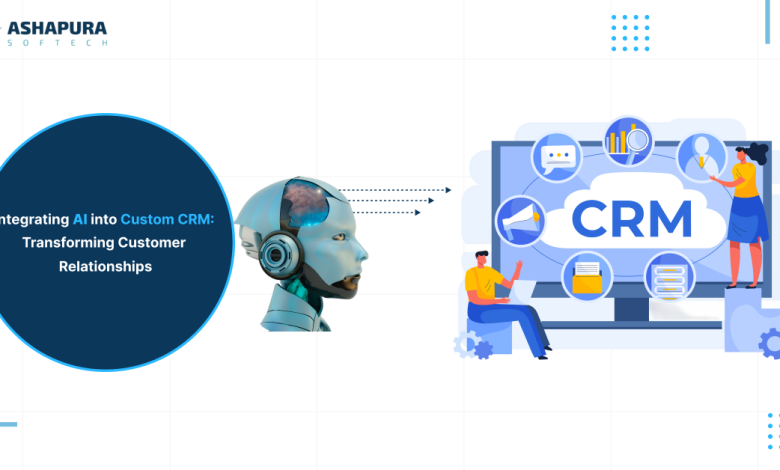
AI-Powered CRM Software: Transforming Customer Relationships is changing the way businesses connect with their customers by introducing smarter, more intuitive tools to manage every interaction. Whether you’re looking to boost engagement or streamline your workflow, this new wave of customer relationship management is designed to make every touchpoint count and every customer feel valued.
By leveraging artificial intelligence, these CRM platforms automate routine tasks, analyze mountains of data for actionable insights, and predict customer needs with impressive accuracy. The result is a more personalized, efficient, and proactive approach to building lasting relationships, no matter your industry or business size.
AI-Powered CRM Software: Transforming Customer Relationships
AI-powered CRM software represents a major leap from traditional customer relationship management platforms by embedding artificial intelligence at their core. This intelligent integration gives businesses the capability to manage customer data, interactions, and insights with unprecedented efficiency and personalization. AI-driven CRMs are not just digital address books or sales trackers—they are adaptive, predictive, and capable of learning from every customer engagement.
The shift from traditional CRM systems to AI-enhanced solutions marks a significant transformation for organizations aiming to stay competitive. Initially, CRMs were mainly used to store contacts and sales information. Over time, advances in AI have made it possible to automate processes, analyze vast datasets, and deliver actionable recommendations in real-time. This evolution enables modern businesses to better understand, anticipate, and serve their customers, ultimately driving growth and loyalty.
Core Functionalities and Evolution of AI-Powered CRM, AI-Powered CRM Software: Transforming Customer Relationships
At its core, AI-powered CRM software leverages machine learning, natural language processing, and predictive analytics to deliver smarter customer insights and automate complex workflows. Unlike traditional CRMs, these systems continuously learn from every interaction, creating a feedback loop that enhances customer relationships and boosts business outcomes. Integrating artificial intelligence into CRM platforms is now essential for businesses seeking to personalize customer experiences, streamline operations, and achieve data-driven decision-making at scale.
Key Features of AI-Powered CRM Software
Modern AI-powered CRM solutions distinguish themselves through advanced features that go beyond basic data storage and retrieval. These features empower teams to make informed decisions, automate repetitive tasks, and deliver more personalized customer experiences. Below are some of the primary AI-driven capabilities found in leading CRM platforms.
| AI Feature | Description | Benefits |
|---|---|---|
| Predictive Analytics | Uses historical and real-time data to forecast sales trends, customer behavior, and opportunity outcomes. | Improves forecasting accuracy and enables proactive engagement strategies. |
| Automated Workflows | Creates intelligent rules to automate repetitive tasks such as follow-ups, lead assignments, and data entry. | Reduces manual workload, allowing teams to focus on high-value activities. |
| Natural Language Processing (NLP) | Enables the CRM to understand and process human language, including emails, chats, and voice commands. | Enhances customer communication and supports advanced search and sentiment analysis. |
| Personalized Recommendations | Delivers tailored content, offers, or solutions based on individual customer profiles and behaviors. | Boosts engagement and conversion rates through hyper-personalization. |
A global retail chain leverages predictive analytics within their CRM to identify customers likely to churn, enabling their marketing team to intervene with targeted offers and personalized outreach.
A SaaS company automates lead nurturing by using AI-driven workflows, ensuring sales reps only engage when prospects are most likely to convert, saving hundreds of hours monthly.
Impact on Customer Relationship Management: AI-Powered CRM Software: Transforming Customer Relationships
The integration of AI into CRM platforms has fundamentally transformed how organizations approach customer relationships. With machine learning and real-time analytics, businesses can move from reactive to proactive engagement, improving customer satisfaction and retention. AI helps to decode complex customer behaviors, enabling businesses to anticipate needs and deliver timely, relevant solutions.
Personalization and Customer Engagement with AI-Powered CRMs
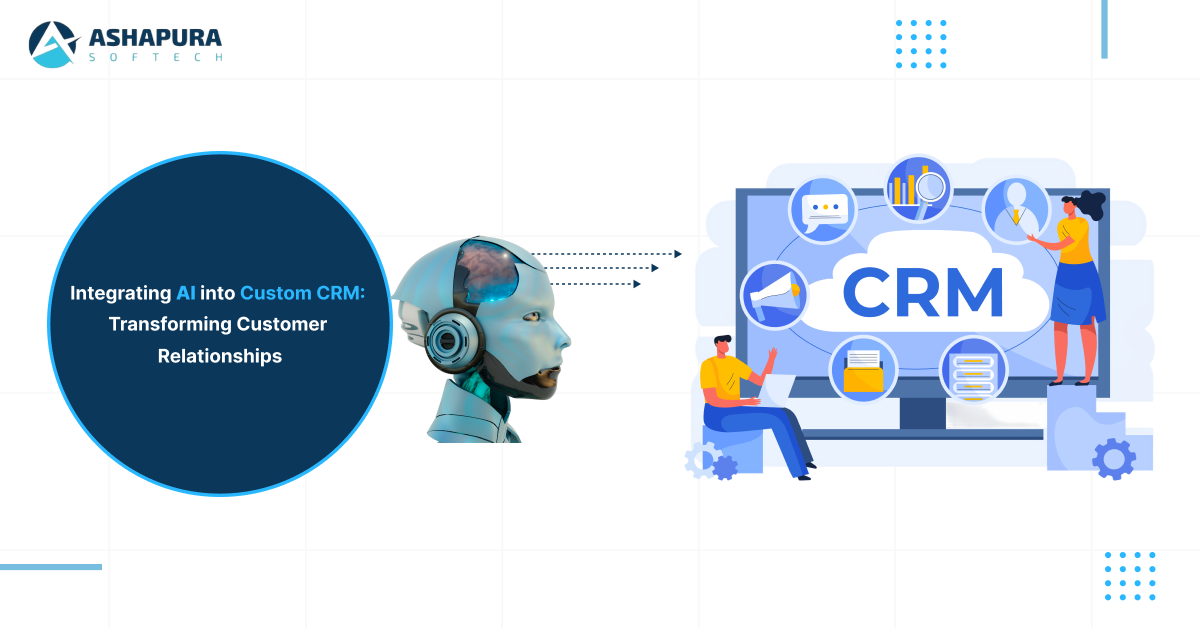
AI-powered CRM software excels at tailoring experiences to individual preferences and behaviors, resulting in more meaningful interactions. The following examples highlight the positive impact of AI on customer relationship management:
- Personalized product recommendations based on browsing history and purchase patterns.
- Automated follow-up messages triggered by customer activity or inactivity.
- Dynamic segmentation for targeted marketing campaigns informed by real-time data.
- Real-time support responses driven by AI-powered chatbots and virtual assistants.
Role of Machine Learning in Understanding Customer Needs
Machine learning algorithms analyze vast volumes of customer data—such as transaction history, interaction logs, and social sentiment—to uncover patterns and predict future behaviors. This predictive capability lets businesses anticipate customer needs, optimize marketing efforts, and allocate resources where they are most effective.
A leading financial institution uses machine learning within their CRM to provide custom investment advice, resulting in a 30% increase in client engagement over twelve months.
Automation and Efficiency Gains
Implementing AI-powered CRM software delivers significant efficiency improvements by automating previously manual and repetitive tasks. This automation not only frees up valuable employee time but also ensures greater consistency and accuracy across all customer interactions.
Manual Versus AI-Driven CRM Processes
The table below compares key aspects of traditional manual CRM processes to those enabled by AI-driven automation, highlighting the clear advantages of intelligent automation for modern business operations.
| Process | Manual Approach | AI-Driven Approach | Benefit |
|---|---|---|---|
| Lead Assignment | Sales manager manually distributes leads to team members. | AI automatically assigns leads based on rep performance and availability. | Faster response times, optimized workload distribution. |
| Data Entry | Employees enter customer information by hand. | AI extracts and inputs data from emails or forms automatically. | Lower risk of error, improved data quality. |
| Follow-up Scheduling | Staff set reminders and calendar events manually. | AI schedules follow-ups based on customer engagement patterns. | No missed opportunities, higher engagement rates. |
| Reporting | Teams build reports using spreadsheets and manual data compilation. | AI generates real-time reports based on live CRM data. | Faster insights, better decision-making. |
Reduction of Human Error and Productivity Gains
By automating data entry, lead management, and reporting, AI-powered CRM systems minimize the risk of human error and improve overall productivity. Employees are able to dedicate more time to high-value tasks such as building relationships and developing strategic initiatives, while repetitive work is handled swiftly and accurately by the system.
A global travel firm estimates a 40% reduction in customer service errors after automating routine inquiries and data updates through their AI-powered CRM.
Data Analysis and Predictive Capabilities
AI-powered CRM platforms excel at transforming vast quantities of raw data into actionable insights. By leveraging machine learning algorithms and advanced analytics, these systems guide decision-making, optimize customer journeys, and increase revenue opportunities.
Predictive Lead Scoring, Churn Prediction, and Sales Forecasting
Predictive lead scoring uses AI to analyze historical deal data, customer behaviors, and engagement signals, assigning probability scores to each lead. Churn prediction identifies customers at risk of leaving, while sales forecasting anticipates future revenue with greater accuracy.
An e-commerce business integrates AI-driven sales forecasting into their CRM, enabling inventory teams to adjust stock levels ahead of seasonal spikes and reduce excess inventory by 25%.
Implementing Predictive Analytics in CRM Workflows
To fully leverage predictive analytics, organizations need a structured approach. Here are key steps to successfully implement predictive capabilities in CRM environments:
- Collect and centralize quality customer data across all touchpoints.
- Integrate AI models designed for lead scoring, churn detection, and forecasting.
- Continuously train and refine machine learning algorithms using new data.
- Monitor model performance and adjust strategies based on actionable insights.
- Ensure cross-team collaboration to act on predictive recommendations promptly.
Enhancing Customer Experience with AI
AI-powered CRM systems are redefining how businesses interact with customers by enabling a new level of personalization and responsiveness. By using AI-driven tools such as chatbots, virtual assistants, and recommendation engines, companies can deliver timely, relevant, and engaging experiences across every touchpoint.
Examples of AI-Driven Customer Experience Tools
The table below Artikels common AI-powered features that contribute to a more dynamic and satisfying customer experience:
| Tool | Description | Industry Use |
|---|---|---|
| Chatbots | Conversational AI agents that handle customer queries instantly, 24/7. | Retail, Banking, Hospitality |
| Virtual Assistants | AI-powered helpers that manage scheduling, reminders, and personalized outreach. | Healthcare, Real Estate, Professional Services |
| Recommendation Engines | Systems that suggest products, content, or services tailored to individual preferences. | E-commerce, Media, Travel |
Importance of Real-Time Response and Support
Instant, AI-enabled responses are crucial for building customer trust and loyalty. By addressing questions, solving issues, and offering recommendations in real time, businesses can elevate their service standards and foster stronger, longer-lasting relationships.
A leading online marketplace saw a 50% increase in positive customer feedback after launching real-time AI chat support, resulting in higher repeat purchase rates.
Integration with Existing Business Systems
Integrating AI-powered CRM software with other business platforms such as ERP, marketing automation tools, and customer support systems is essential for maximizing value and ensuring a unified customer view. Strategic integrations streamline workflows, eliminate data silos, and support more effective decision-making.
Integration Methods, Compatible Platforms, and Outcomes
The table below summarizes popular integration methods, the types of platforms commonly involved, and the outcomes that organizations can expect:
| Integration Method | Compatible Platforms | Expected Outcomes |
|---|---|---|
| API-Based Integration | ERP, E-commerce platforms, Marketing Automation | Real-time data syncing, unified dashboards |
| Native Connectors | Popular SaaS suites (e.g., Salesforce, HubSpot) | Seamless setup, faster deployment |
| Custom Middleware | Legacy databases, proprietary systems | Tailored solutions, extended functionality |
Best Practices for Seamless Integration
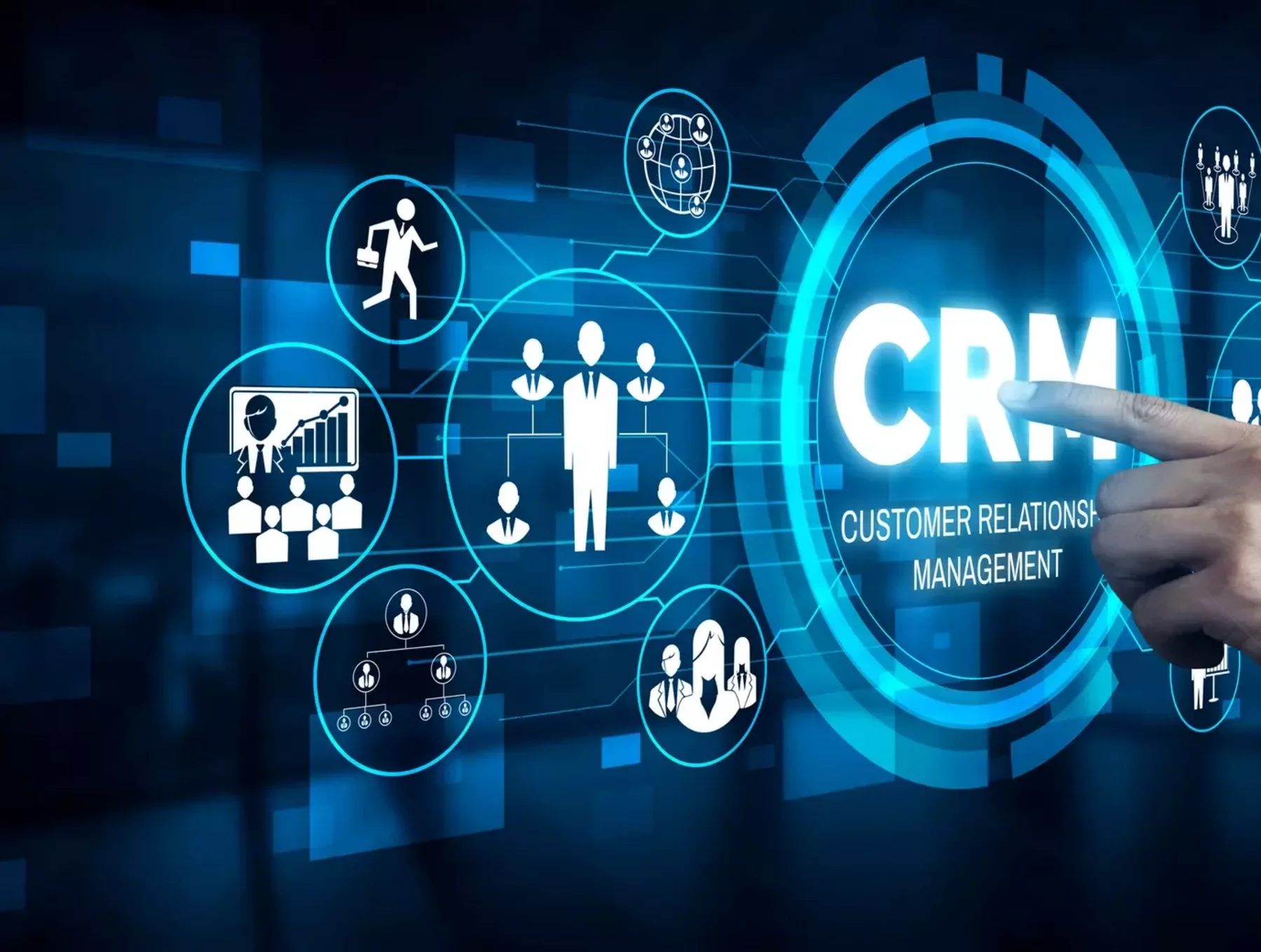
To ensure successful integration, organizations should focus on thorough planning and phased deployment. Key practices include:
- Clearly mapping data flows and identifying integration points before implementation.
- Using standardized protocols (such as REST APIs) to simplify data exchange.
- Testing integrations in a sandbox environment to minimize disruptions.
- Providing training for team members on new workflows and functionalities.
- Monitoring integrations for security, performance, and data consistency.
Security and Privacy Considerations

AI-powered CRM solutions handle large volumes of sensitive customer and business data, making robust security and privacy protocols essential. Protecting data integrity and complying with regulations such as GDPR or CCPA are top priorities for organizations deploying these advanced systems.
Security Protocols and Data Protection Procedures
Effective data protection in AI-powered CRM systems is achieved through a combination of technical controls, organizational policies, and continuous monitoring. Strategies include encrypting data at rest and in transit, enforcing strict access controls, performing regular audits, and ensuring adherence to regional data privacy laws.
- Challenge: Unauthorized access to sensitive data
Solution: Implement role-based access control and multi-factor authentication. - Challenge: Data breaches caused by third-party integrations
Solution: Regularly vet partners and enforce secure API practices. - Challenge: Inadequate transparency in AI-driven decision-making
Solution: Adopt explainable AI models and maintain detailed logs for all automated actions. - Challenge: Regulatory non-compliance (GDPR, CCPA, etc.)
Solution: Ensure data residency requirements, provide consent management, and support user data requests.
Industry-Specific Use Cases
The flexibility of AI-powered CRM software allows organizations across diverse industries to customize solutions for their unique customer relationship needs. From retail and finance to healthcare, AI-driven CRMs are transforming operations, improving customer engagement, and driving measurable outcomes.
| Industry | Use Case | Benefits |
|---|---|---|
| Retail | Personalized promotions and real-time inventory management using AI recommendations. | Increased sales, reduced stockouts, improved customer loyalty. |
| Finance | Automated loan application processing and fraud detection through machine learning. | Faster approvals, enhanced security, better customer experience. |
| Healthcare | Predictive patient engagement and AI-guided appointment scheduling. | Better patient outcomes, reduced no-shows, optimized resource allocation. |
| Travel & Hospitality | AI-driven itinerary suggestions and instant customer support via chatbots. | Higher booking rates, improved guest satisfaction, streamlined operations. |
A major healthcare provider deployed an AI-powered CRM to identify at-risk patients and send tailored appointment reminders, resulting in a 20% decrease in missed appointments within six months.
Future Trends in AI-Powered CRM Software
The landscape of AI-powered CRM solutions is evolving rapidly, with emerging technologies set to further enhance customer relationship management. Forward-looking organizations are preparing for the next wave of advancements that promise even deeper insights and efficiency.
Anticipated Features and Advancements
Several innovations are poised to shape the future of CRM platforms:
- Advanced voice recognition for hands-free CRM navigation and data capture.
- Sentiment analysis enabling real-time mood tracking and adaptive engagement strategies.
- Autonomous decision-making where the system initiates actions such as re-engagement campaigns without human intervention.
- Greater interoperability with IoT devices and external data sources for richer context and personalization.
For example, leading e-commerce companies are piloting AI-driven sentiment analysis tools that adjust marketing content based on customer emotions detected in interactions. Meanwhile, autonomous CRM modules are already appearing in the real estate sector, automatically scheduling follow-ups and sending proposals without manual input.
These trends are expected to further streamline workflows, improve customer satisfaction, and empower organizations to create truly adaptive and responsive customer relationship strategies in the years ahead.
Conclusion
In summary, the arrival of AI-powered CRM software marks a dramatic shift in how businesses understand and support their customers. With features that enhance efficiency, boost personalization, and foster stronger connections, companies are better equipped than ever to thrive in a dynamic market. As technology continues to evolve, these smart CRM systems are set to redefine what’s possible in customer relationship management.
Question & Answer Hub
What is the main difference between traditional CRM and AI-powered CRM?
Traditional CRM mainly stores and organizes customer data, while AI-powered CRM uses artificial intelligence to analyze data, automate tasks, and predict customer behavior for deeper engagement and personalization.
Is AI-powered CRM software suitable for small businesses?
Yes, many AI-powered CRM solutions are scalable and offer features that can benefit small businesses, such as automated workflows and personalized customer insights without requiring a large IT team.
How does AI in CRM software improve sales forecasting?
AI analyzes past sales data and customer interactions to identify patterns and predict future sales trends, helping businesses make more informed decisions and set realistic targets.
Is customer data safe with AI-powered CRM platforms?
Most reputable AI-powered CRM systems include advanced security measures like encryption, access controls, and compliance with industry regulations to protect customer data.
Can AI-powered CRM software integrate with other business tools?
Yes, these platforms are designed to connect seamlessly with a variety of business applications, including marketing, ERP, and communication tools, for streamlined workflows and improved data sharing.

